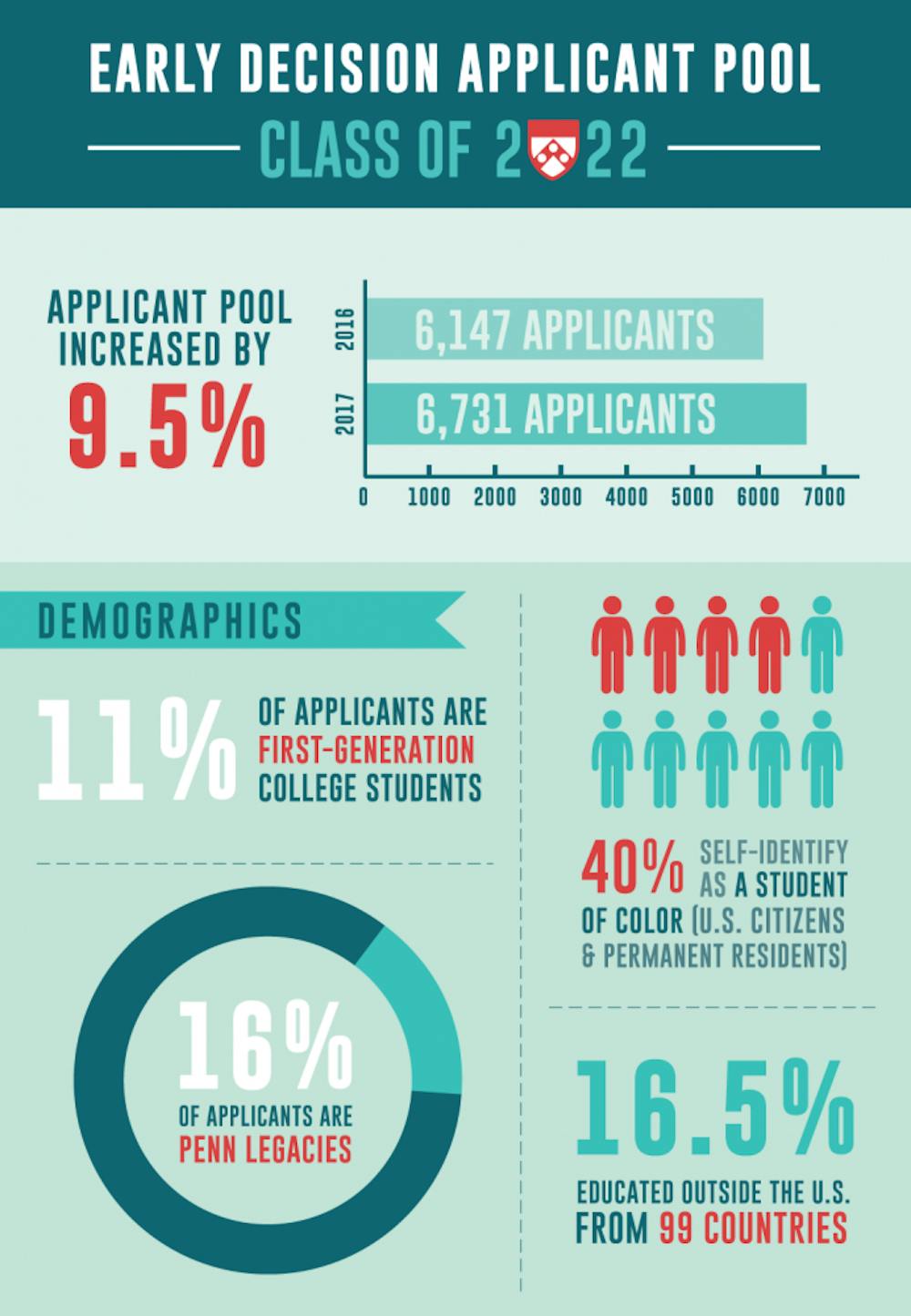
After extending the deadline for students affected by natural disasters, Penn has received a record number of early decision applications for its incoming class of undergraduate students.
The University received 6,731 applications — a 9.5 percent increase from last year's record-breaking number of 6,147 applications.
ED results will be released through the Penn Applicant Portal on Dec. 13 at 7 p.m. Students who applied through the QuestBridge National College Match were notified of their admissions results on Dec. 1.
Of the students who applied, 47 percent are women, 11 percent are first-generation college students, 40 percent self-identify as students of color, 16.5 percent were educated outside of the United States, and 16 percent are legacies, which refers to students who are children or grandchildren of Penn alumni.

Applications increased in all geographic regions. International applications increased by 5 percent, making up 16.5 percent of the pool. On the domestic front, applications from the Mid-Atlantic had the largest increase of 18 percent. Both the West Coast and the Midwest also saw applications increase by a significant number of 17 percent.
Applicants from the Northeast increased by 8 percent, bringing its total percentage to 43 percent of the pool. This makes the Northeast the most-represented region at Penn.
The most-represented states are Pennsylvania, with 915 applications; New Jersey, with 785; California, with 715; New York, with 691; Florida, with 254; and Texas, with 226.
In an emailed statement, Penn Dean of Admissions Eric Furda highlighted the geographic diversity of the applicant pool.
"The breadth of the increase geographically, across the United States and around the globe, stands out to me as one indicator of the appeal of a Penn education," Furda wrote. "This is particularly telling given the severe natural disasters of the last few months which has disrupted the lives of many communities and the attraction of U.S. higher education from abroad."

The Managing Director of the college counseling service Ivy Coach Brian Taylor agreed, adding that there has been a trend across elite, urban universities to court students in rural areas.
"After the presidential election, [colleges] made a concerted effort to appeal to students in more rural areas," he said. "There are Americans in places where schools haven’t traditionally recruited. Schools like Penn have made concerted efforts to attract these kinds of students."
Taylor also credited Furda’s candor and outreach efforts for the increase in applicants.
“When you have an admissions officer who is so forthright about what Penn is looking for, it’s going to encourage people to apply,” he said. “I think college applicants respond to what he has to say.”
Co-founder of One-Stop College Counseling and 1986 Wharton graduate Laurie Kopp Weingarten agreed. She highlighted Furda’s blog, page217.org, a Coursera course Furda started that teaches high school students how to apply to college, and Furda’s satellite radio program, “The Process,” as innovate ways the dean reaches potential applicants.
The Daily Pennsylvanian is an independent, student-run newspaper. Please consider making a donation to support the coverage that shapes the University. Your generosity ensures a future of strong journalism at Penn.
Donate







